I’m going to start by asking you two questions to help you determine where you fall on America’s great educational divide. This is for parents and grandparents only.
-
When you hear that your child (or grandchild) has done remarkably well on the SAT, is your first thought, “They can get into a GREAT school” or “They can go to school for FREE”?
-
When you heard of the Varsity Blues college admissions scandal—where parents engaged a broker to help bribe their children into elite colleges—did the parental obsession with elite college admissions feel utterly alien to you? Or did it resonate in some small way with your own parenting experience?
The reason I’m asking is that I think one of America’s great political, cultural, and class divides is driven in part by parenting cultures that possess fundamentally different educational priorities.
I’m thinking through parenting differences in part because of a rather dramatic statistic that made waves online yesterday. It turns out that Donald Trump finished third in the presidential vote of Harvard University’s incoming freshman class. Joe Biden earned a whopping 87 percent of the vote, Green Party candidate Howie Hawkins won 6.7 percent, and Trump gained a paltry 6.3 percent.
Writing in his invaluable Slow Boring Substack, Matthew Yglesias uses that statistic to launch into a fascinating discussion of educational polarization. It turns out that Harvard’s numbers, though dramatic, aren’t that out of line with its peer schools, and that voting disparity extends from the student body to the communities themselves. As Yglesias notes, precinct data for 20 top universities put Biden’s share of the vote at a remarkable 88 percent:
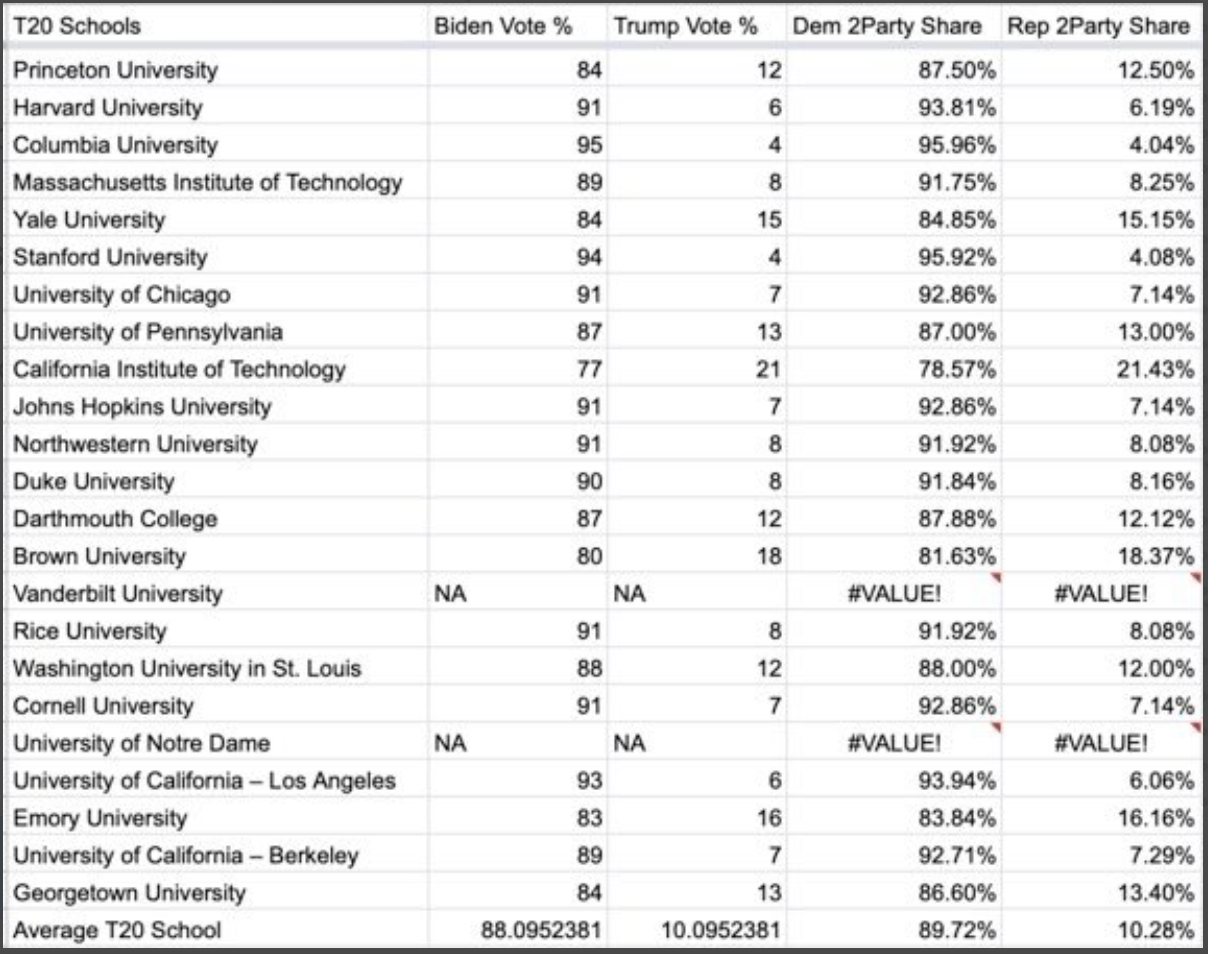
Incoming freshman data refute the idea that places like Harvard or Yale transform students from conservative or moderate to progressive or “woke.” Instead, overwhelmingly progressive students enter overwhelmingly progressive institutions and emerge … overwhelmingly progressive.
This same overwhelmingly progressive population then filters straight into elite corporate and governmental institutions, ultimately rendering them just as progressive as the schools they left. As Harvard’s freshmen become more progressive, so do America’s cutting-edge corporations.
Are elite academies’ incoming classes more progressive because admissions’ committees discriminate against conservatives, systematically and at scale denying admission to equivalently credentialed conservative students?
I don’t doubt there are individual instances of ideological discrimination. For example, when I served on the Cornell Law School admissions committee, I witnessed a series of interesting biases, but none were close to strong enough to explain the vast ideological difference between Ivy League students and the general public.
In fact, as Acadia University’s Jeffrey Sachs noted on Twitter, two relatively recent audit studies indicate that ideological bias can’t truly account for disparities. A 2020 paper from Northwestern University’s James Druckman and Richard Shafranek indicates that only African-Americans “who reference politics in any way” faced a measurable disadvantage.
Their audit included researchers sending emails posing as “potential applicants” to four-year colleges requesting further information. The emails varied in their content, indicating different racial identities and political preferences. There was no evidence of racial or political bias in the rates of response from the schools, with one key exception:
The second study involved inquiries to graduate programs, and the results were similar. There was no statistically significant evidence of bias:
As Sachs notes, these audits don’t definitely disprove a discrimination theory, but they are interesting and relevant. So what accounts for the differences? I think part (maybe a substantial part) relates to parenting.
I’ve spent my entire adult life (including of course my entire parenting life) living in either deep-blue or deep-red regions of the United States, and I can tell you that the parenting cultures are substantially different. To go back to the questions above, in my experience the upper-middle-class families in deep-blue America are extremely focused on accessing prestige education. In some small way they understand the obsessions of the Varsity Blues parents, and they look at high test scores primarily as an opportunity to gain access to elite schools.
Where I live, however, the Varsity Blues parents might as well live on a different planet, and tremendous test scores are much more often viewed as the ticket to free tuition. College prestige is much less important than the overall college experience. Parents and kids set their sights on, say, the University of Alabama, and the difference between a 1200 SAT and a 1500 SAT lies in the cost, not the choice of school. And in fact in 2018-2019, more National Merit Scholars joined the Crimson Tide than enrolled in Harvard, Stanford, Yale, Michigan the University of Chicago, and virtually every other top university in the land.
What’s one school that beat Alabama? The University of Florida. So the Gators can occasionally beat ‘Bama in something.
Parents (rightly) understand that graduating from Alabama or Florida not only is no impediment to prosperity, in Southern communities it can bond you to your peers for life. Indeed, this can be a healthy way to approach college. The prestige of your school is hardly make-or-break, and placing that level of stress on your children can make them anxious and unhappy.
But here’s the catch—while you can do very, very well coming from, say, an SEC school, there is still an Ivy or Ivy-equivalent hiring preference in many of the nation’s top institutions. Choices always involve tradeoffs.
The result, then, is the world we live in now, where many millions of Americans can live prosperous lives and enjoy the respect of their communities, yet still feel as if they’re not quite fully respected by the American cultural elite. They don’t feel welcome everywhere in American life. There’s a barrier to entry to the apex of American cultural and economic institutions that not all their high-performing peers face.
Yesterday, the New York Times’ Jane Coaston kicked off a fascinating discussion with this tweet:
I think this gets to exactly what I’m talking about above. This gets to the Trump boat parade phenomenon. Have you ever seen a boat parade? Do you know how much most of those boats cost? Yet a tremendous amount of Trump’s appeal rests with an extremely prosperous GOP base that’s respected and admired in their home communities but feels scorned by “them” and fears that its place in the national conversation hangs by a Big Tech thread.
They’re not entirely wrong! They do have prosperity and local power, but they lack cultural influence outside of their churches and civic associations. They increasingly perceive their path to national influence as lying increasingly (maybe even exclusively) through political power. Even though Apple CEO Tim Cook is an Auburn graduate (War Eagle!), there is no yellow brick road from Opelika or Tuscaloosa to Cupertino or Palo Alto.
Moreover, the sense of cultural isolation can be self-reinforcing and self-sustaining. The fewer conservatives who attend the Ivy League, the more alien it can feel. The fewer conservatives who work in Silicon Valley or in the white shoe law firms, the more alien they can feel. As important as those institutions may be, they’re just not part of the normal conservative career plan.
This level of ideological and educational separation is bad for our culture and our nation. It breeds groupthink and extremism. As Cass Sunstein argued years ago in his brilliant formulation of the “law of group polarization,” when like-minded people gather and deliberate, they tend to grow more extreme, sometimes dramatically more extreme. In many ways, the “Great Awokening” is a product of group polarization.
Should more conservative parents orient their kids towards Harvard and away from Alabama? Yes, I think so. Should more companies intentionally recruit top students from a deeper and more diverse pool of schools? Sure. But when competing American cultures are locked deeply into habits of life, it becomes increasingly difficult to cross the streams.
In the meantime we’re left with two Americas living two very different educational realities. At Harvard, Joe Biden wins almost 90 percent, and Donald Trump finishes third. At the University of Tennessee? Two weeks ago I sat in the student section with my son as the students led an entire stadium in a sing-song chant, “F**k Joe Biden.”
College students are woke? Not everywhere and not at the same rates. Different cultures yield different choices, and those different choices continue to drive this nation apart.
One more thing …
Arkansas? Woo Pig? If there was any justice in this world, elite status would be entirely determined by college football performance, and in that world, Arkansas is finally having a moment. Enjoy:
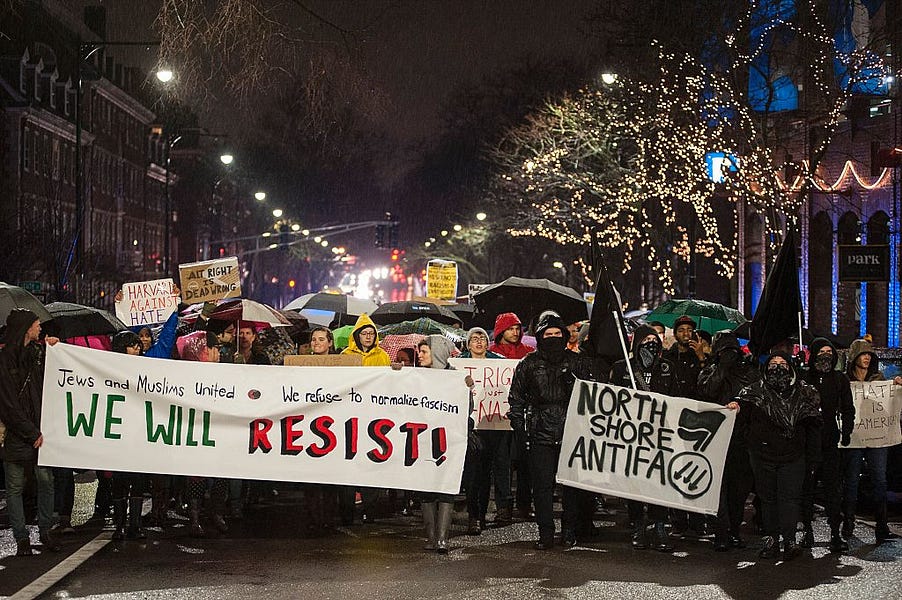

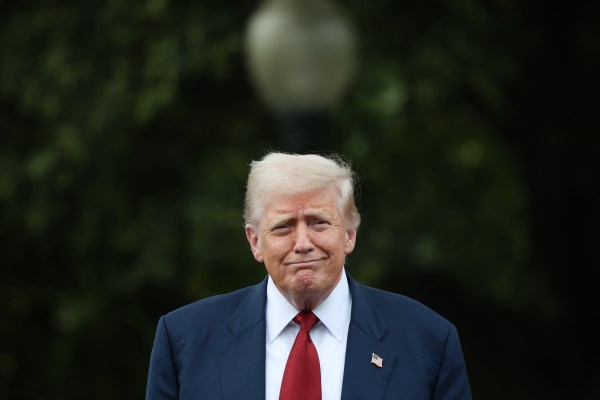
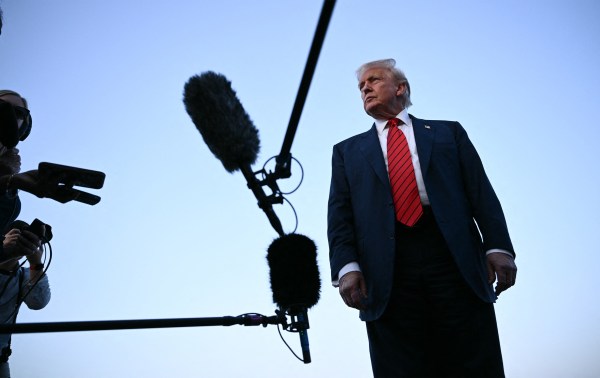

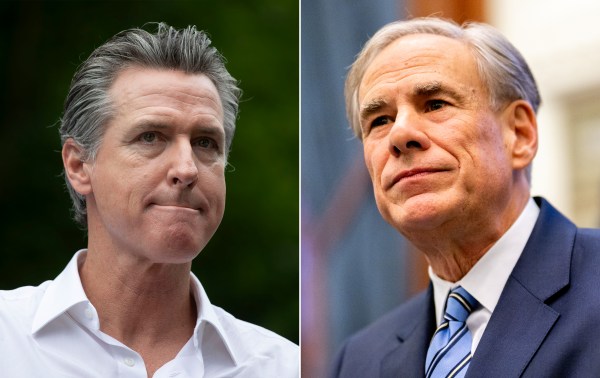

Please note that we at The Dispatch hold ourselves, our work, and our commenters to a higher standard than other places on the internet. We welcome comments that foster genuine debate or discussion—including comments critical of us or our work—but responses that include ad hominem attacks on fellow Dispatch members or are intended to stoke fear and anger may be moderated.
With your membership, you only have the ability to comment on The Morning Dispatch articles. Consider upgrading to join the conversation everywhere.